onMouseOver="onPic('languePic');" onMouseOut="offPic('languePic');">
More of history?
Consult:
Armoirieses
the history of Sanary
The tower of Sanary
The harbor of Sanary
1688: Victory and joy
1707: Twenty-two
ships in roadstead
1789: The revolution
1859: The first train
XXth century
1923: Sanary on sea
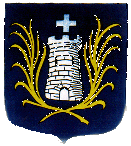
The Revolution of 1789 will make as everywhere victims in our borough. The national possession sale, chapels, wood, earths, will may make new rich but won't enrich the few lucky. In 1792, the Prud'Homie (tribunal for worker) follows to the Confraternity Saint Peter of fishers. At the time of the attack of Toulon, to hands of English and royalists, representatives in mission will make stop mayors of Sanary and Six-Fours under the pretext, improper, that they delivered weapons to the English troops. The two mayors will be guillotined to have wanted defend their managed of these false accusations. It will be necessary to wait for the XIXth century so that the borough restarts to prosper, in the harbor as to the countryside.
In the beginning of this century, the fleet, that counted thirty-five ships, making the trade mainly with Echelles du Levant (Ladders of the Rising), fell only to twelve ships, that make a trade of wheat, of wine, of oil, of wood to burn, of bricks and tiles. The harbor, forsaken during the uneasy periods, silted up itself all over again. Some improvements however for roads. In particular in 1810: one constructs a bridge of stone on the Reppe. The cemetery of the Saint-Peter street (today street of the Prud'homie) is transferred to our present old cemetery. Fishers aren't grouped anymore in Confraternity, but created a Prud'homie in 1792. One proceeds to repair all streets of the borough.
In the beginning of this century, the fleet, that counted thirty-five ships, making the trade mainly with Echelles du Levant (Ladders of the Rising), fell only to twelve ships, that make a trade of wheat, of wine, of oil, of wood to burn, of bricks and tiles. The harbor, forsaken during the uneasy periods, silted up itself all over again. Some improvements however for roads. In particular in 1810: one constructs a bridge of stone on the Reppe. The cemetery of the Saint-Peter street (today street of the Prud'homie) is transferred to our present old cemetery. Fishers aren't grouped anymore in Confraternity, but created a Prud'homie in 1792. One proceeds to repair all streets of the borough.
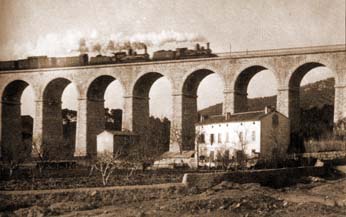 Until 1859, life flows out enough peacefully. It's in May 1859 that the first train joining Marseille to Toulon is going to make its first journey. This new fashion of transport is going to carry a deathblow to three activities: the one of windmills, the one of oilmills and, especially the one of the maritime transports.
Until 1859, life flows out enough peacefully. It's in May 1859 that the first train joining Marseille to Toulon is going to make its first journey. This new fashion of transport is going to carry a deathblow to three activities: the one of windmills, the one of oilmills and, especially the one of the maritime transports.The harbor is going to decline quickly. With the slowing of the olive tree culture, the grapevine increases its importance. It will be some thus until 1877, where the phylloxera will affect the soil awfully. Yet, of domains, those of Saint-Trinide, of the Millière, of the Vernette, made big progress. The short and disastrous war of 1870 will come to stop this expansion.
Fortunately in 1865 arrived a mayor who will know how to turn the country toward a future dedicated to the tourism. One must him constructions of hotels, works of embankment embellishment : plantation of trees, fountains and, especially the widening that is going to make of the harbor a beautiful walk. The train is its ally with the transport of a clientele that searches for the sun of our Mediterranean, because it will first be a tourism of winter.
On the eve of the XXth century, Saint-Nazaire becomes Sanary November 12, 1890. It is its name in Provencal - San Nari - that takes back its rights.
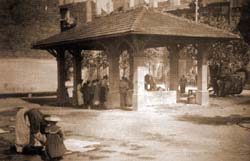
The works of embellishment continue, some new hotels are construct, villas spill in the hinterland. Sanary becomes a small city. The war of 1914-1918, as for all cities of France, will stop this expansion. It will only take up the end of the conflict that veiled a lot of families and particularly the world of the countryside and the fishing one.
July 27, 1923, Sanary becomes Sanary-on-sea.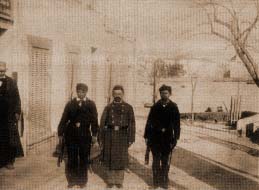
The automotive transport apparition is going to allow workers to be going work to the Arsenal of Toulon, to shipyards of La Seyne and La Ciotat. It doesn't exist in the soil any important industry. The tourism however, from 1936, be going to develop itself and to become especially a tourism of summer with the new infatuation for seabaths. There again, the war of 1939-1945 is going to interrupt this evolution.
Many foreign, Germans, Austrian, Spanishes, are going to come to take refuge at home, fleeing the regime of their country. In 1942, the German and Italian troops occupy the free zone. These troops undertake to transform the coast of it reduced walled. For it, more than 150 houses are going to be destroyed with explosive. It will need the Liberation to stop this devastation of our township.
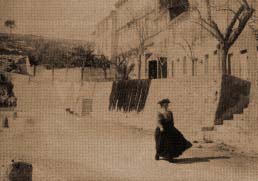 Blockhouses block streets, the harbor is forbidden, the population took refuge in the countryside or in other departments less exposed.
Blockhouses block streets, the harbor is forbidden, the population took refuge in the countryside or in other departments less exposed.
With the recovered peace, take back the tourist activities. It is the only industry that can permit a profitable activity. Alas, in the torment, several hotels disappeared: Dol hotel, Hotel of the Sea, Hotel of La Ménandière, as well as family's pensions.
On the other hand, favored by the abandonment of the culture, earths become available for the secondary residences. Sanary, a few every day, change. It is another one Sanary-on-sea that builds itself for the XXIth century.

The automotive transport apparition is going to allow workers to be going work to the Arsenal of Toulon, to shipyards of La Seyne and La Ciotat. It doesn't exist in the soil any important industry. The tourism however, from 1936, be going to develop itself and to become especially a tourism of summer with the new infatuation for seabaths. There again, the war of 1939-1945 is going to interrupt this evolution.
Many foreign, Germans, Austrian, Spanishes, are going to come to take refuge at home, fleeing the regime of their country. In 1942, the German and Italian troops occupy the free zone. These troops undertake to transform the coast of it reduced walled. For it, more than 150 houses are going to be destroyed with explosive. It will need the Liberation to stop this devastation of our township.
 Blockhouses block streets, the harbor is forbidden, the population took refuge in the countryside or in other departments less exposed.
Blockhouses block streets, the harbor is forbidden, the population took refuge in the countryside or in other departments less exposed.
With the recovered peace, take back the tourist activities. It is the only industry that can permit a profitable activity. Alas, in the torment, several hotels disappeared: Dol hotel, Hotel of the Sea, Hotel of La Ménandière, as well as family's pensions.
On the other hand, favored by the abandonment of the culture, earths become available for the secondary residences. Sanary, a few every day, change. It is another one Sanary-on-sea that builds itself for the XXIth century.
Barthélémy Rotger
from the Academy of the Var